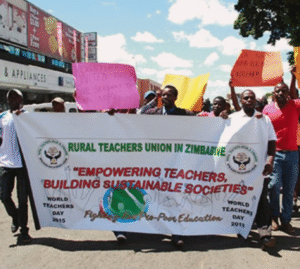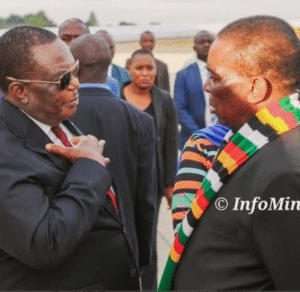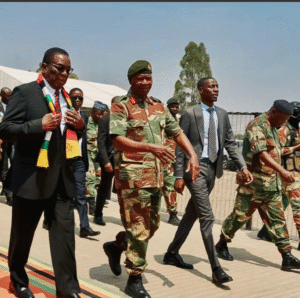ZIMBABWE’S POLITICAL CRISIS: A JOURNEY FROM DEMOCRACY TO CHAOS

In a significant setback for democracy in Zimbabwe, the Citizens’ Coalition for Change (CCC), led by Nelson Chamisa, faced a ban from contesting in recent by-elections. Orchestrated by Sengezo Tshabangu, the CCC’s interim secretary-general, this move highlights the deep-seated judicial capture and compromised state of oversight institutions like Parliament. The development has raised fears of potential civil disobedience and unrest.
Despite formidable opposition, CCC had previously shown strength in the 23 and 24 August elections, hindering Zanu PF’s aim for a two-thirds majority. The success of CCC candidates, like Pashor Sibanda in Bulawayo’s Cowdray Park and Munyaradzi Kufahakutizwi in Mabvuku-Tafara, against well-resourced Zanu PF opponents, demonstrated that financial power doesn’t always translate into electoral victory. However, subsequent court rulings barred popular CCC candidates like Kufahakutizwi and Sibanda from contesting, reflecting a judicial bias in favor of Tshabangu.
This scenario, seemingly orchestrated by President Emmerson Mnangagwa, is seen as a move to push Zimbabwe towards a one-party state, despite significant opposition support in the August elections. This disregard for democratic principles has disheartened many Zimbabweans and led analysts to draw comparisons with the tactics of the late Robert Mugabe.
Experts like Ibbo Mandaza and Stephen Chan have voiced concerns over this political trajectory, with Chan suggesting a radical stance for CCC. Rashweat Mukundu, a political analyst, has been vocal about CCC’s need to rethink its participation in Parliament and councils, given the political capture of state institutions.
This development marks a new low in Zimbabwean politics, threatening the country’s democratic fabric and potentially leading to a more fractured and volatile political landscape.




